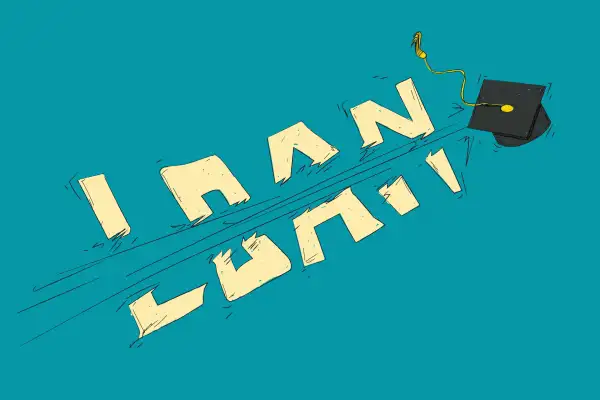Pre Approval Student Loans: What You Required to Know Before Applying
Pre Approval Student Loans: What You Required to Know Before Applying
Blog Article
The Function of Credit Rating Scores in Securing Local Business Loans for Business Owners
In the competitive landscape of entrepreneurship, securing a tiny company funding usually pivots on the critical element of credit rating ratings. A higher credit score can open up doors to favorable car loan problems, while a lower rating might offer substantial obstacles.
Understanding Credit Report
Credit rating are crucial numerical representations of a person's credit reliability, acting as a pivotal factor in economic decision-making for lenders. These scores are originated from a comprehensive evaluation of an individual's credit report, including facets such as payment history, credit utilization, size of credit rating, new credit report accounts, and sorts of credit made use of. Normally varying from 300 to 850, greater scores signify reduced risk to lenders, while reduced ratings suggest greater risk.
The estimation of credit rating is accomplished by credit rating bureaus using proprietary algorithms, with the most widely acknowledged models being FICO and VantageScore. Each design may evaluate aspects somewhat in different ways, however they all objective to give a regular action of credit rating danger. A strong credit scores rating mirrors the individual's dependability in taking care of debt, making prompt payments, and keeping a healthy and balanced balance between credit used and readily available credit score.
It is essential for individuals and company owner to understand their credit report, as these numbers can have far-reaching ramifications past individual money. On a regular basis keeping track of one's credit score report, dealing with errors, and adopting audio financial routines can considerably improve credit history, thereby boosting the individual's general economic account and creditworthiness.
Relevance for Financing Approval
Recognizing one's credit rating is foundational, as it plays a considerable function in the procedure of funding approval for local business. Lenders utilize credit score scores as a key statistics to evaluate the creditworthiness of candidates. A strong debt score indicates a background of liable financial behavior, suggesting to lending institutions that the applicant is likely to pay back the loan in a timely manner. Consequently, a high credit rating can dramatically enhance a business owner's possibilities of safeguarding a finance with favorable terms, consisting of reduced interest rates and more flexible payment options.
In comparison, a reduced credit report could signify possible threat, leading lenders to either decline the funding application or impose more stringent problems. This makes it essential for business owners to be knowledgeable about their debt standing, as it straight influences their ability to accessibility funding. Additionally, credit history offer as a standardized action that allows lenders to enhance their decision-making process, making certain effectiveness and consistency. As local business frequently call for prompt accessibility to funds for development and sustainability, maintaining a robust credit rating becomes necessary. Hence, understanding and taking care of one's credit rating is a crucial element of planning for financing applications and achieving company success.
Aspects Impacting Scores
A number of factors contribute to the resolution of a credit history, each playing an essential duty in forming a person's credit scores profile. Among these, settlement background attracts attention as one of the most prominent, showing the timeliness and consistency of debt repayments. Lenders very closely scrutinize this aspect to assess financial integrity. The amounts owed, or credit history usage, significantly effect ratings. A high ratio great site of utilized credit history to available credit score can recommend economic overextension, negatively affecting credit reliability.
Size of credit rating background additionally aspects right into credit history rating estimations, with a longer credit rating background generally seen more positively. This statistics offers understanding right into the person's lasting monetary habits, supplying lenders a broader point of view on their credit history monitoring abilities. Additionally, the types of credit report being used are considered, as a mix of credit accounts, such as rotating charge card and installment fundings, can show the capability to manage different financial commitments.
Finally, current credit rating inquiries may affect ratings (pre approval student loans). Constant applications for new credit report can show economic distress, therefore negatively influencing the score. Each of these elements is crucial in the comprehensive evaluation of a credit report rating, affecting an entrepreneur's capability to safeguard a little company finance
Improving Your Credit Rating
Enhancing one's credit scores rating is akin to nurturing a garden; cautious focus to essential areas can produce substantial improvements. Repayment background comprises a significant portion of a debt rating; thus, establishing up automated tips or settlements can aid maintain uniformity. High credit report use ratios, or the quantity of credit score used family member to the credit history restriction, can adversely affect scores.

Last but not least, keeping older credit rating accounts can positively influence the typical age of credit score, which is an additional aspect in racking up versions. While brand-new credit score questions need to be minimized to stay clear of short-lived rating dips, accountable credit report administration in time will naturally cause score renovation, thus enhancing qualification for positive small service loan terms.
Alternative Funding Options
Business owners with less-than-ideal credit score scores may discover these choices not only extra available yet additionally customized to their one-of-a-kind service demands. These platforms usually offer faster approval processes and even more adaptable terms than conventional banks, commonly taking into consideration factors beyond debt ratings, such as company performance and money circulation.
Additionally, microloans, commonly supplied by not-for-profit organizations, cater to small organizations and start-ups. They provide smaller sized financing quantities with reduced interest prices, making them excellent for entrepreneurs who call for restricted resources.
Billing financing and merchant cash advances are additionally worth thinking about. The former entails offering superior invoices to a lending institution at a price cut, while the last gives a bear down future sales. Both options can boost cash circulation without the rigorous credit report needs of typical car loans.
Final Thought

These scores are acquired from a thorough analysis of a person's credit rating background, incorporating elements such as repayment background, credit score utilization, size of credit background, brand-new credit accounts, and kinds of credit utilized (pre approval student have a peek at these guys loans). A solid credit score mirrors the individual's dependability in taking care of debt, making prompt repayments, and keeping a healthy and balanced equilibrium between credit scores utilized and available credit report

Report this page